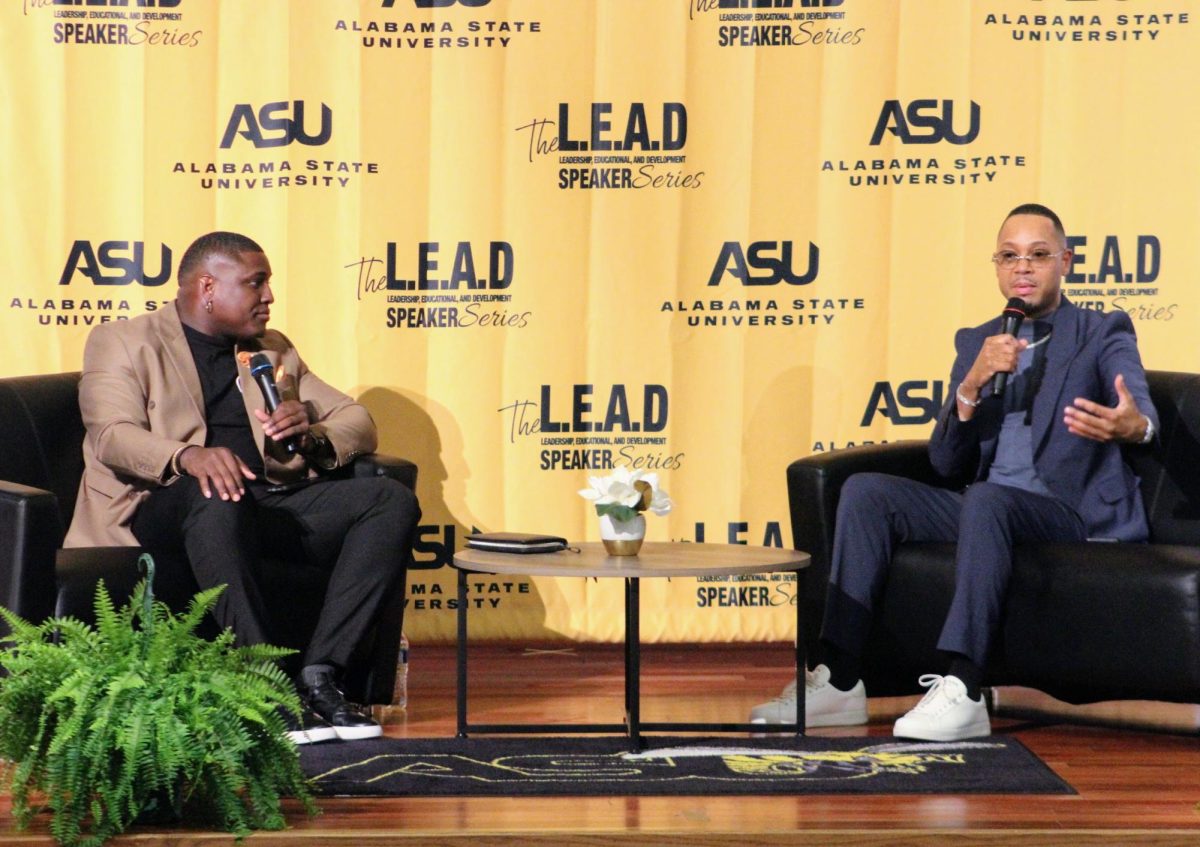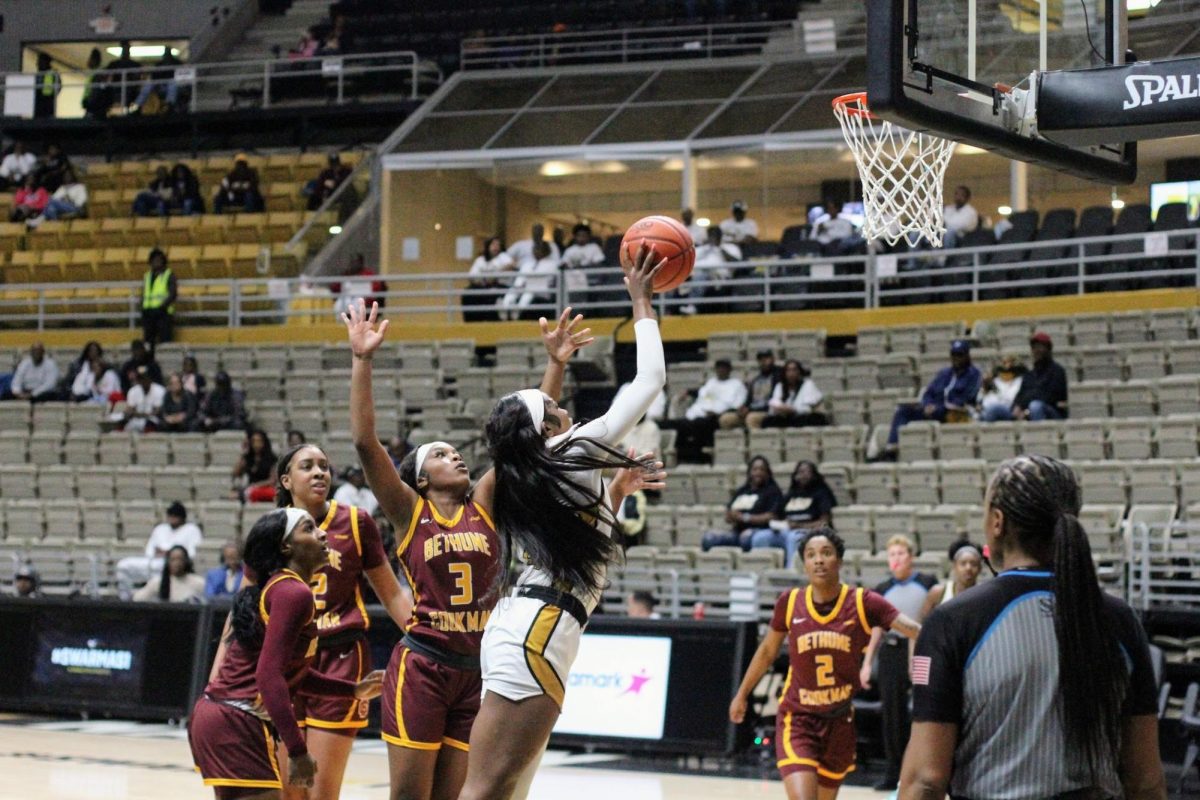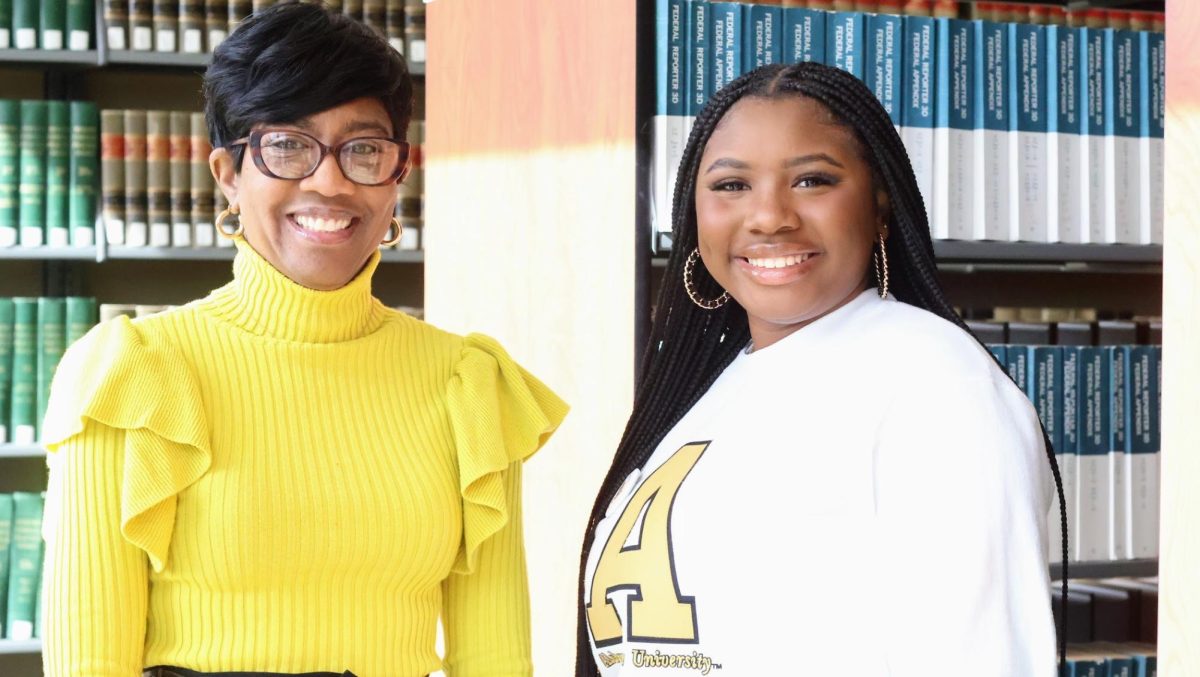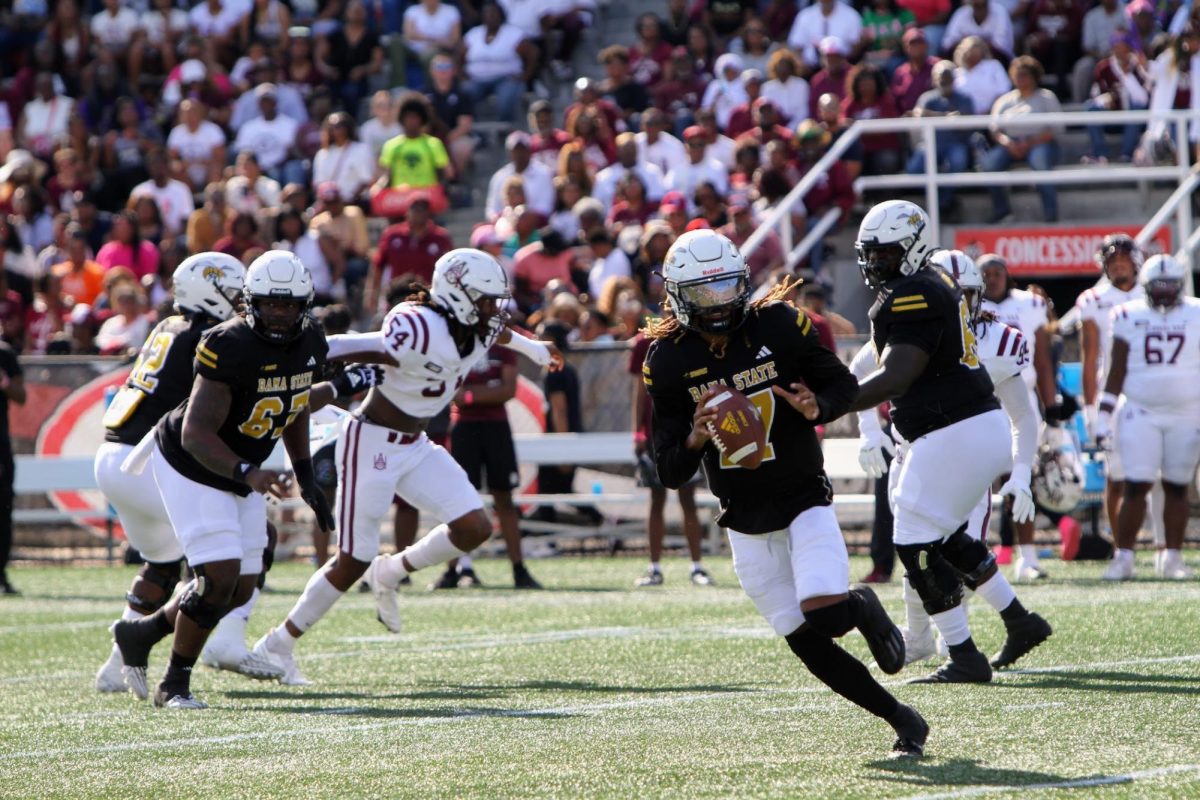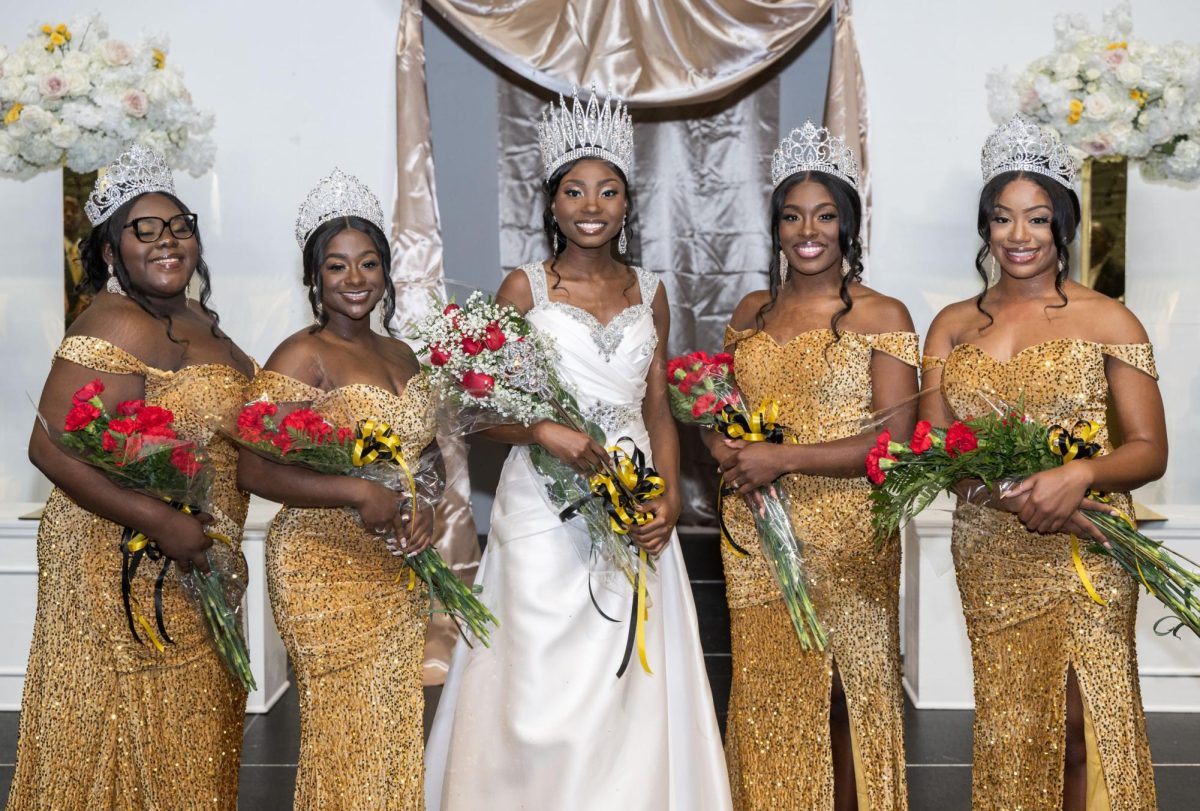North Carolina Agricultural and Technical University graduate and Hollywood actor Terrence J. graced the stage of the Ralph David Abernathy Hall Auditorium on Thursday, Oct. 5, at 11 a.m., as part of the “Leadership, Education, and Development (L.E.A.D) Speaker Series.”
Upon the announcement that Terrence J. would be a speaker, students became excited.
“I’m very excited to get some insight from him because he is very, very powerful in our community,” Amilha Broadnax, a junior psychology major, said. “He has a lot of insight being a college graduate, and he can help us. I am just ready to be inspired.”
The goal of the event was to gain knowledge that can change the direction of student lives positively.
Roberto Earle-Lynch, a senior double major in business marketing and management, served as the interviewer for the program.
Set up as a question and answer engagement, Terrence J. explained why he believes students of color should consider attending an HBCU, using himself as an example.
“One school took a chance on me, and once I arrived, I started off on academic probation,” he said. “But over time, I met people that changed my life. I met deans that inspired me and met other students that influenced me. I joined a fraternity that completely changed my perspective and instilled valuable morals in me. By the time I graduated, I was on the dean’s list and had been elected student body president. I made all these different changes in my life, but it was because an HBCU took a chance on me. HBCUs for over 100 years have been doing that for countless African American people.”
Terrence J. explained how the four years of attending an HBCU served as a safety net for him.
“Those four years I look at as a safety net,” he said. “I look at it like life is climbing along a tightrope, and for these four years, you have a net underneath you. Or, it’s like climbing up a mountain and these four years you got the harness on you. After that, then you’re on your own and that net gets taken away so that when you fall you can really bump your head. So, those first couple years that you come in, make sure that you’re dreaming as big as you can. The sky’s the limit.”
Terrence J. cautioned students about the do’s and don’t’s of college life.
“You want to make sure you attend as many classes as possible,” he said. “Don’t do too many things you shouldn’t be doing. One thing that I just want to jump out at early and say that I’d definitely put on your to do list is while you’re working on your academics, also understand as much as you can about increasing your financial literacy. Financial literacy is the most important thing that I wished someone told me to really focus on when I was in school.”
Lynch also asked Terrence J. “What are some work ethics or traits that have helped you succeed so far?”
Terrence J. replied.
“One of the biggest traits that has helped me succeed, well I’ll give you a few. One is diet, how you eat and what you put into your body is so incredibly important. There are countless books that will link your diet to all types of different diseases and different health things that can improve your life. Overall, energy-wise, I always have a lot of energy and I’m always able to work and perform at my best because of my diet. Who you surround yourself with is very very very important. The people that are in your circle are going to dictate where you will be with your life. The last key to success is to keep on investing in yourself.”
Terrence J encouraged students to utilize their time wisely during the four or five years that they spend at an HBCU.
“The first thing is to know where you want to be,” he added. “Let me identify a list of the top five people that do what I want to do where I live.” He suggested putting yourself on the radar. “What you want to do is find a mentor and once you find a mentor then you’re really on a path to success. I’ve had many mentors that have come into my life. Once you find your mentor you’ll be able to learn from them. Then you’ll be able to exceed them because you’ll be able to have the key learnings that they had at a younger age. You’ll be able to use it on your path to success.”
“Over the years, there has been this argument that HBCUs do not really prepare us for the real world,” Earle-Lynch asked. “In HBCUs, there are people like us, but when we graduate it’s not that same demographic. What experience did you take that helped you prepare for the real world.”
Terrence J. answered.
“I feel like I came out more prepared, more focused, and had more of something to prove. I look at going to college like when we come out, we’re playing teams that aren’t as good as us. We got more, better things that happen inside the classroom, better teachers, better academia. You know, sometimes our facilities need more money so that we can have state-of-the-art things. But I feel like because of it, there’s a scrappiness about all HBCUs that just gives us a little chip on our shoulder that some of our counterparts don’t have.”
He finished with.
“You don’t see people from Harvard care the same way we care, you know, it’s a different type of care. They care, but it’s a different type of pride that only HBCUs have.”
After the main interview, the audience had an opportunity to ask Terrence J. questions.
Jameel Merrill, a freshman marketing major, asked, “What was your motivation to keep going?”
Terrence J. replied.
“The biggest thing that helps motivate me is having a community, having people around that pushes me.”
Alexandria Trammer, a sophomore, said, “I am glad that everybody turned out because this is something that we all need to get these tools under our belts. Also to learn how to utilize what our resources are and to be able to handle the world and the experiences that are going to come with that.”
Categories:
Terrence J. talks about the importance of HBCUs, student responsibility
October 7, 2023
Terrence J. (right) recently visited the campus of Alabama State University to speak to students during the Leadership, Educational and Development Speaker Series. He is interviewed by Roberto Earle Lynch (left), a senior double major in marketing and management.
Story continues below advertisement
0
More to Discover


